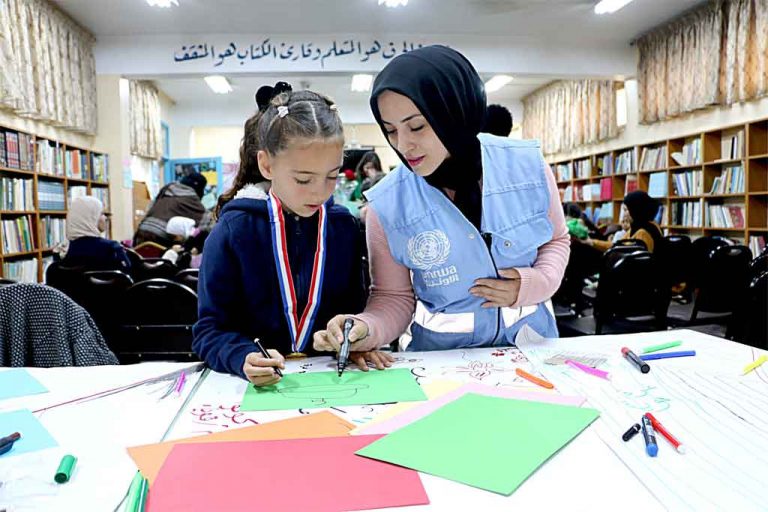The date, which commemorates the adoption of the United Nations Convention on the Rights of Children, makes an urgent call this year in light of the risks they face, particularly due to the expansion of the conflict in Gaza.
According to the United Nations Children’s Fund (UNICEF), since the Declaration was adopted 34 years ago, the child population has not been in greater danger.
“Unfortunately, children today live in a world that is increasingly hostile to their rights,” UNICEF director Catherine Russell acknowledged regarding the date.
Nearly 400 million children live in conflict zones or are fleeing from them, equivalent to a fifth of that population.
“Many are being injured, murdered or sexually violated. They are losing family and friends. And some are being recruited and used by armed forces or groups,” Russell lamented.
At the same time, an increasing number are forced to move repeatedly, separated from their families, losing critical years of education and ties to their communities.
Unicef considers the coincidence of this adverse scenario with the increase in poverty and inequality, public health emergencies and the climate crisis to be deeply worrying.
More than one billion children currently live in countries that are at extremely high risk from the impacts of climate change.
This means that half of the entire child population could suffer irreparable damage as our planet continues to warm, insisted the director of Unicef.
Among other consequences, children face the threat of losing their homes or schools due to increasingly violent storms, suffering severe deterioration due to the loss of local crops, or even losing their lives due to heat waves or pneumonia caused by air pollution, he added.
The international date also brings together the call for peace from the Secretary General, António Guterres, together with organizations such as Unicef itself or the UN Committee on the Rights of the Child.
“Wars, climate change, economic upheaval. Crisis after crisis, children around the world are being robbed of their lives and their future. Children need peace now,” the head of the United Nations wrote on his account on x.
For its part, the Committee called in a statement for a ceasefire and a return to the foundations of humanitarian law to safeguard the youngest.
World Children’s Day has become “a day of mourning for the many boys and girls who have recently died in armed conflicts,” the text acknowledges.
More than 4,600 infants have been killed in Gaza in just five weeks. This war has claimed the lives of more children in less time and with a level of brutality that we have not witnessed in recent decades, the organization laments.
The head of Unicef called for greater promotion of the fulfillment and protection of children’s rights, including supporting the alignment of national legal frameworks with the United Nations Convention.
At the same time, she demanded ensuring accountability for violations wherever they occur.
According to the UN Committee on the Rights of the Child, thousands die in armed conflicts in many other countries, including Ukraine, Afghanistan, Yemen, Syria, Myanmar, Haiti, Sudan, Mali, Niger, Burkina Faso, the Democratic Republic of Congo and Somalia.
“Verified figures show that in 2022, the global number of minors murdered or mutilated was 8,630,” she estimates.
This is of deep concern given the fact that up to four thousand minors were denied humanitarian access last year.
Given the current situation in Gaza, the total number of minor victims of these serious human rights violations will increase exponentially, warns the Committee.
ef/ro/ebr










